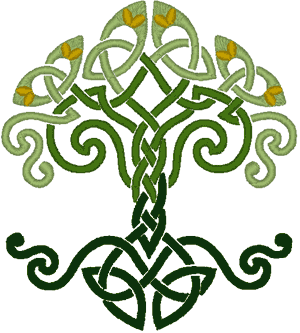What is Hypnosis?

Hypnosis is: The induction of a natural state of consciousness in which a person is more open to accepting and acting upon suggestions.
Everyday Occurrence:
Did you know that you are in a natural state of hypnosis every day ? Recall how focused you are when engrossed in a good book, or watching a captivating movie? This is a natural state of hypnosis.
Have you ever been deep in thought and became unaware of what was going on around you ? Or driven your car to a destination and upon arrival have little recollection of the drive itself? This is a natural state of hypnosis.
When natural hypnosis occurs the "conscious" mind is occupied thinking or absorbing information, while the "unconscious" mind is attending to the automatic physiological processes necessary for you to function (eg. steering, breaking, navigating the correct route).
Morning and Night:
Each night when you begin to drift off to sleep and each morning just as you begin to wake, you are in the ‘hypnogoic state’, the stage just between waking and sleeping. This is a natural state of hypnosis.
What is induced hypnosis ?
Hypnosis is a state of calm, focussed attention where one is not so easily distracted by the external environment and is more receptive to positive suggestions, while retaining the ability to make choices that don’t go against ones will or morals.
The Hypnotist or Hypnotherapist simply works with you to create an hypnotic state that is easily and comfortably achieved and maintained through the interaction between the subject and the hypnotist.
How Does Hypnosis Work ?
There are several good models on how hypnosis works although the exact mechanism is not yet fully understood. Here are some of the more popular analogies.
The Voice and The File Cabinet
In basic terms the mind consists of 2 parts; the conscious and the unconscious. This is the difference between how the 2 parts operate:
- the conscious mind thinks, and its thoughts are experienced like a voice in your head
- the unconscious mind is not analytical, it does not have opinions. It simply absorbs, stores and records information like indifferently storing files in a file cabinet.
Tip of the Iceberg:
The unconscious is very powerful, it takes care of everything our conscious mind is not attending to ( which is far more than one might think). It keeps our body functioning eg. heart beating, lungs breathing, digestive tract working. It initiates necessary responses eg. heightened awareness when danger approaches. The mind can be likened to an iceberg with only the tip visible above the water. The unconscious is like the bulk of the iceberg and the conscious only the tip.
Your Mind and Your Computer are alike:
The unconscious mind is like the hard drive on your computer, it stores great quantities of information and runs installed programs. The conscious mind is like the computer operator which clicks on the installed programs as needed. The hard drive does not question or analyse the programs it’s been instructed to play, it simply plays them.
The Job of Running Programs
As we grow and develop, the job of the unconscious mind is to learn and run "programs" automatically so that the conscious mind does not have to think about how to perform. Thus we develop programs such as a "walking program" to walk automatically, we produce "reading, writing, typing programs", "bike riding programs" and "car driving programs". Mostly this is a good thing for it frees up our conscious mind to attend to other things and to avoid being overwhelmed.
When things go Awry:
Sometimes however, the unconscious learns to execute dysfunctional, problematic or outdated programs, such as ‘overeating programs’, ‘cigarette smoking programs’, ‘panic attack programs’, ‘anger programs’. These programs activate automatically in response to certain triggers.
We may even run our nervous and circulatory systems in ways that produce ‘poor health’ programs.
The unconscious does not assess whether or not the programs are useful or harmful, it simply performs on demand. Essentailly our mind responds from our automatic system.
Installing Upgraded Programs:
To install positive new programs into the minds’ hard drive, we must first access the hard drive / unconscious. Working exclusively with the conscious mind will rarely delete existing programs or install new programs quickly. One must directly access the source, in other words the hard drive (unconscious) to make sustainable changes.
Using the ‘Record Mode’:
Hypnosis is a way of going into the "hard drive" or unconscious mind, putting it into "record mode", and recording over old programs with new programs. * Hypnosis aims to delete dysfunctional programs and install updated functional programs.
Hypnosis as the Process of Change:
Change is achieved through the process of inducing a state of hypnosis (the "record mode" of the mind) and then "rewriting" the old programming through various techniques such as suggestions and guided imagery.
The content that is delivered during hypnosis is highly customized to the client, based on relevant information gathered during an extensive interview which takes place at the client’s first session. Self hypnosis and other techniques can be taught to enable the client to optimize and maintain results.
Measure of Success:
Hypnosis achieves well-being by bringing one’s conscious and subconscious minds into alignment to serve mind-body-soul.
For more about hypnosis, check our Frequently Asked Questions (FAQ) section.
* As with all therapies, individual results may vary.
Please note that some services may be eligible for coverage under standard extended health benefit plans!
Please call us at 519-803-2965 for more information.

For more information
Phone - 519-803-2965
email - Hypnosis@glentaracentre.com